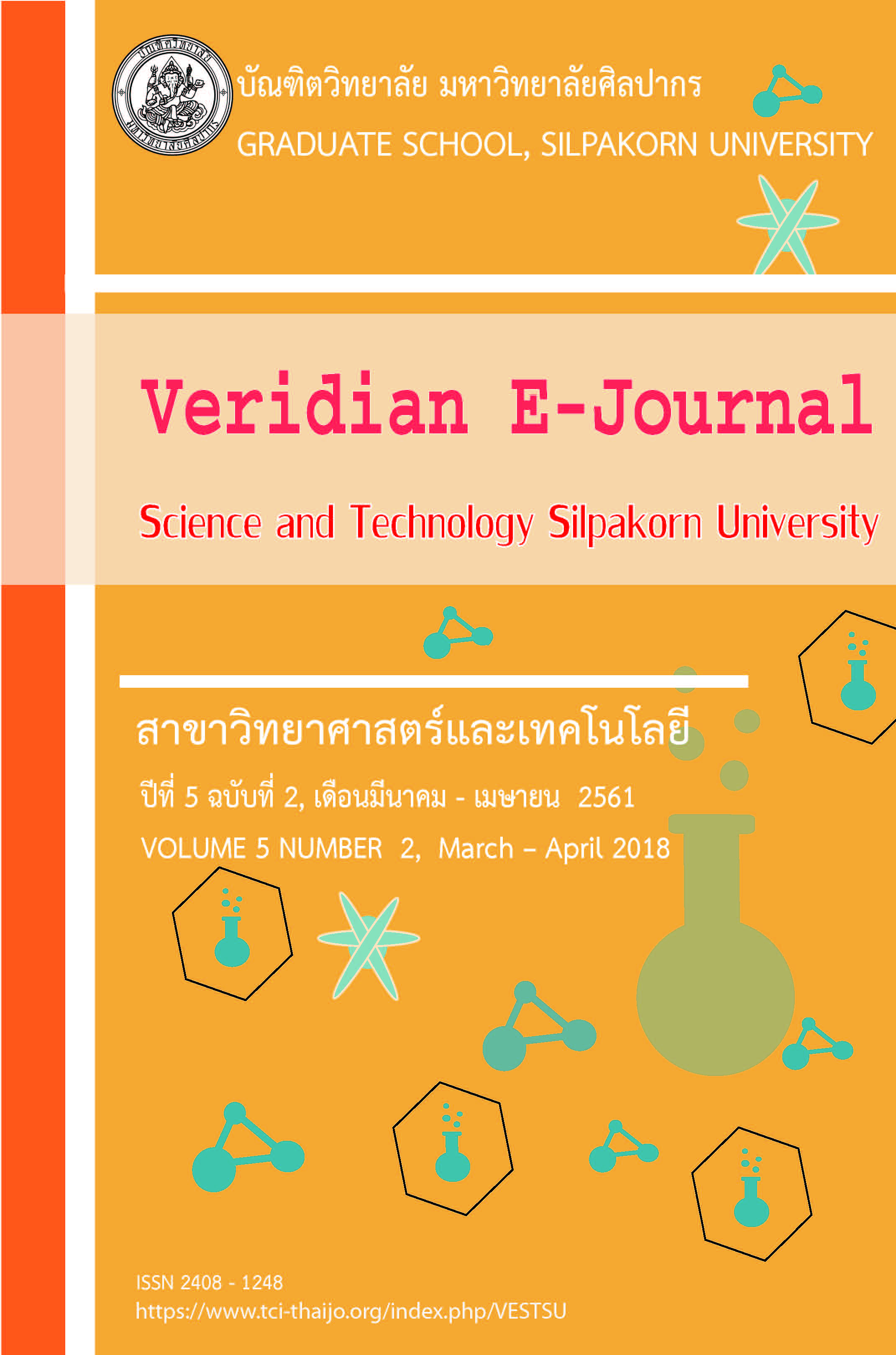ระบบการจัดการผังรายการโทรทัศน์โดยวิดีโอออนดีมานด์ระยะใกล้ กรณีศึกษา บริษัท อสมท จำกัด (มหาชน) (The Management System of Broadcast Television Schedule Based on Near Video on Demand: A Case Study of MCOT Public Company Limited)
Main Article Content
Abstract
การวิจัยในครั้งนี้มีวัตถุประสงค์เพื่อ 1) ศึกษาและประยุกต์ใช้แนวคิดของทฤษฎีมนุษย์เป็นศูนย์กลางของการออกแบบมาเป็นกรอบในการพัฒนาระบบการจัดการผังรายการโทรทัศน์โดยวิดีโอออนดีมานด์ระยะใกล้ กรณีศึกษา บริษัท อสมท จำกัด (มหาชน) 2) พัฒนาระบบการจัดการผังรายการโทรทัศน์โดยวิดีโอออนดีมานด์ระยะใกล้ 3) ประเมินประสิทธิภาพระบบวิดีโอออนดีมานด์ระยะใกล้ 4) ศึกษาความพึงพอใจของพนักงานจัดผังรายการโทรทัศน์ต่อระบบวิดีโอออนดีมานด์ระยะใกล้ กลุ่มตัวอย่างที่ใช้ในการวิจัย คือ ผู้บริหารและพนักงานที่มีส่วนเกี่ยวข้องกับการจัดการผังรายการโทรทัศน์ พนักงานที่ทำงานด้านการออกแบบเว็บแอพพลิเคชั่น และพนักงานที่ทำงานด้านระบบวิดีโอออนดีมานด์ระยะใกล้ จำนวน 14 คน ด้วยวิธีการเลือกแบบเจาะจง เครื่องมือที่ใช้ในการวิจัยประกอบด้วย 1) แบบสัมภาษณ์เชิงลึก 2) ระบบการจัดการผังรายการโทรทัศน์ 3) แบบประเมินประสิทธิภาพ 4) แบบประเมินความพึงพอใจ
ผลการวิจัยพบว่า
- ผู้วิจัยได้สรุปประเด็นสำคัญออกมาเป็น 3 กลุ่ม ได้แก่ กลุ่มผู้บริหารต้องการระบบที่มีความเสถียรยืดหยุ่นต่อการใช้งาน กลุ่มผู้พัฒนามองว่าการพัฒนาระบบจะต้องมีการออกแบบให้ใช้งานได้สะดวก ไม่ซับซ้อน และใช้เทคโนโลยีที่ทันสมัยมาใช้ในการพัฒนาระบบ และกลุ่มของพนักงานจัดผังรายการโทรทัศน์ต้องการระบบที่ใช้งานได้สะดวก ระบบมีการตอบสนองแบบเรียลไทม์และสามารถลดระยะเวลาในการทำงานลงได้ ผู้วิจัยจึงได้เก็บรวบรวมกลุ่มแนวคิดทั้งหมดมาเป็นกรอบในการออกแบบและพัฒนาระบบ
- ระบบการจัดการผังรายการโทรทัศน์โดยวิดีโอออนดีมานด์ระยะใกล้ที่พัฒนาขึ้นประกอบด้วย 4 โมดูล ได้แก่ แดชบอร์ด เซิร์ฟเวอร์ ผังรายการโทรทัศน์ และวิดีโอ ไลบรารี่ เพื่อเข้ามาแก้ปัญหาเกี่ยวกับการจัดผังรายการโทรทัศน์ในรูปแบบเดิม ซึ่งได้มาจากการสัมภาษณ์เชิงลึกจากกลุ่มผู้บริหาร กลุ่มผู้พัฒนาเว็บแอพพลิเคชั่น และพนักงานจัดผังรายการโทรทัศน์ โดยพัฒนาขึ้นในรูปแบบเว็บของแอพพลิเคชั่น และใช้เทคนิคเว็บเรซสปอนต์ซีฟในการออกแบบ
- การประเมินประสิทธิภาพของระบบวิดีโอออนดีมานด์ระยะใกล้ มีคะแนนเฉลี่ย 4.60 ซึ่งอยู่ในระดับมีประสิทธิภาพดีมาก และความพึงพอใจของกลุ่มตัวอย่างต่อการใช้ระบบวิดีโอออนดีมานด์ระยะใกล้ มีคะแนนเฉลี่ย 4.47 ซึ่งอยู่ในระดับมีความพึงพอใจมาก
The purpose of research aimed to 1) Study and apply theory of the Human-Centered Design as a framework for The Management System of Broadcast Television Schedule Based on Near Video on Demand: A Case Study of MCOT Public Company Limited. 2) Development of television program management system using short-range video-on-demand techniques. 3) Performance evaluation of Near Video on Demand 4) Satisfaction of TV programming staff on short-range video-on-demand systems. The sample used in this study was the executives and staff involved in the television program management. Web application designer and Near-Video On-Demand Employees total of 14 people by purposive sampling method. Research tools include: 1) In-depth interviews 2) Near-field video on-demand systems 3) The video on-demand system performance evaluation by the experts and 4) Satisfaction form assessment.
The research of that:
- The researcher summarized the key points into 3 groups: Management requires a stable, flexible system. The development team requires the system must be easy and not complicated to use and use modern technology to develop the system and group of employees. The system has real-time response and can reduce work duration, so the researchers collected all the concepts as a framework for system design and development.
- The management system of broadcast television schedule based on near video on-demand approach consists of 4 modules: Dashboard, Server, Schedule TV and Video Library. To solve the problem of the layout of television programs in the original format. This is based on in-depth interviews with executives. Web Application Developer Group and TV programming staff developed in a web-based format of the application and use web responsive techniques in design.
- The near video on-demand performance evaluation was rated at 4.60, which is very good. Satisfaction of the sample on the use of near video on-demand system was 4.47 or very satisfied.

